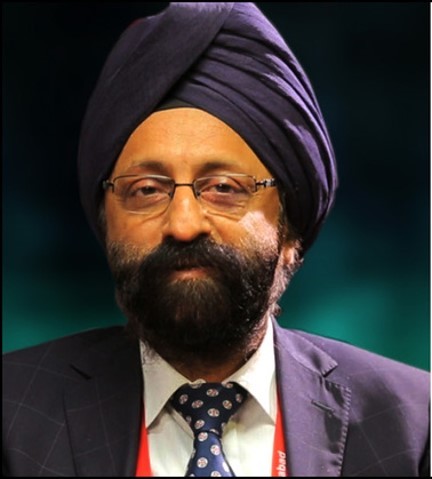Dr. JPS Sawhney discusses the role of cascade screening in familial hypercholesterolemia in Indian population
M3 India Newsdesk Apr 01, 2018
Familial hypercholesterolemia is grossly underdiagnosed and undertreated particularly among young.

This article is contributed by Dr. JPS Sawhney, Senior consultant, Chief Clinical & Preventive Cardiology, Chairman Department of Cardiology, Sir Ganga Ram Hospital, New Delhi.
Part 1- Read Here; Familial hypercholesterolemia is grossly under-diagnosed: Dr. JPS Sawhney
The role Of cascade screening in Familial Hypercholesterolemia(FH) In Indian population to prevent premature CAD in India
Cascade screening using lipid profile is a simple, cost-effective and efficient method to identify the carriers of the FH genes in the family members of the index case (siblings and children above 10 years). Once an index case (i.e. the first individual diagnosed with FH in a family) is discovered, his/her biological first-degree relatives (parents, siblings, offspring) are systematically screened for FH (via clinical history, physical examination, and lipid profile), preferably in conjunction with DNA testing, although this is not mandatory.
If the LDL level is more than 160 mg per decilitre with score more than 5 points then the probability is high of their being the carrier of FH gene. If we can reduce the cholesterol levels of people with FH then young heart attacks which happen at the age of 40-50 years can be prevented. Thus it is important to pick up FH in community as early as possible and thereby save lives from premature heart attacks.
Treatment of familial hypercholesterolemia
FH patients are treated with high dose of statins if required statins are combined with Ezetimibe. The target is to reduce the LDL-C <100mg/dL or in presence of CVD <70mg/dL. First-line treatment for patients with heFH is with statins.
The index case of premature CAD is managed like any other patient of CAD or heart attack but after the cascade screening if we find children or sibling of these patients then we should treat them with statins to control bad cholesterol (LDL), along with lifestyle modification such as regular exercise, low cholesterol diet, low carbohydrate diet, cessation of smoking and control of stress.
As clinical outcome is related to the degree and duration of exposure to elevated LDL, early treatment is vital. Statin therapy with a low dose is safe in children. According to guidelines from European Society of Cardiology, children with FH should be educated to adopt a proper diet and treated with statin from 8-10years of age. Targets for treatment should be LDL-C <135mg/dL at > 10 years of age.
PCSK9 inhibitors ( Evolocumab/ Alirocumab) are found to be effective and safe either alone or in a combination of statin in reducing LDL and CVE in a patient of statin intolerance and FH population. Recently conducted FOURIER and OSLER study have shown the efficacy of PCSK9 inhibitors (reduced LDL by 50-60%) and reduced cardiovascular events.
Dr JPS Sawhney, Senior consultant, Chief Clinical & Preventive Cardiology, Chairman Department of Cardiology, Sir Ganga Ram Hospital, New Delhi.
Our experience of SGRH we have observed 36% of male and 45% female as premature CVD in our institution. Out of 326 patients with premature CAD in last 14 months we found smoking in 38%, DM (35%) and FH in approx 25% of patient (definite 5.5% and probable 19.6%). HT was observed in 20% of patient.
Read Part 1, Familial hypercholesterolemia is grossly under-diagnosed: Dr. JPS Sawhney
Disclaimer-The information and views set out in this article are those of the author(s) and do not necessarily reflect the official opinion of M3 India. Neither M3 India nor any person acting on their behalf may be held responsible for the use which may be made of the information contained therein.
-
Exclusive Write-ups & Webinars by KOLs
-
Daily Quiz by specialty
-
Paid Market Research Surveys
-
Case discussions, News & Journals' summaries